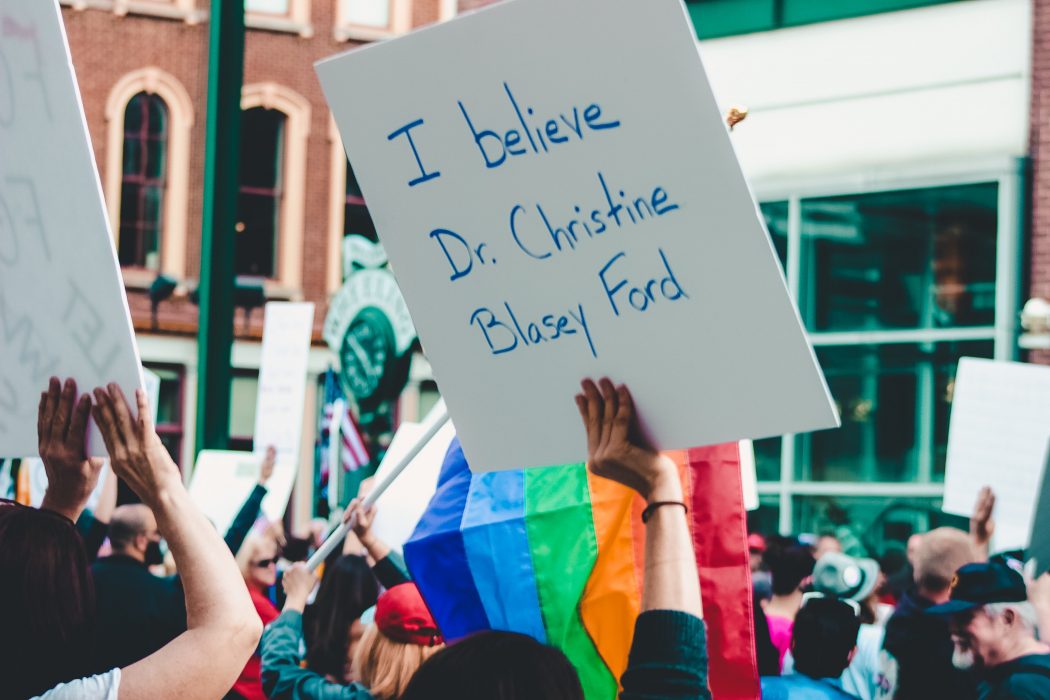On October 29, The McGill Women’s Health Advocacy Club (WHAC) hosted Letters For Resistance in the Brown Building. In light of Dr. Christine Blasey Ford’s testimony against now confirmed Supreme Court Justice Brett Kavanaugh, WHAC organized the evening for anyone to attend to write letters to advocate against sexual violence.
“We wanted to have an event where survivors could write letters to other survivors and public figures such as Dr. Ford, or even Professor Hill, or any of the women from the Cosby case,” Iris Kim, President of WHAC, told The Bull & Bear.
Also present at the event were volunteers from the Office for Sexual Violence Response, Support, and Education (OSVRSE). According to Kim, “We tailored the event to have volunteers from the [OSVRSE] be here as active listeners so that survivors could also write letters to themselves in support of the healing process.”
Even though Dr. Ford’s testimony took place several weeks ago, the Kavanaugh confirmation process understandably gave the Women’s Health Advocacy Club a strong conviction to organize something on McGill Campus for students who felt powerless after watching it unfold. Rather than going with a traditional protest, Dr. Ford’s bravery influenced the event planning in an important way.
“We wanted to take the focus off of the men, or other people who have committed violence, and instead focus on the people who were brave enough to speak out,” explained Tori Ford, head of events for OSVRSE and VP of Fundraising for WHAC. “We wanted to definitely make tonight very survivor-centric.”
Sexual assault remains a pressing issue on university campuses across Canada. For instance, a 2018 survey conducted by Maclean’s of over 20,000 Canadian undergraduate students found that more than one in five female students were survivors of sexual assault.
McGill, in particular, has recently been widely criticized for what many consider a lack of commitment to creating a pro-survivor environment where individuals feel safe disclosing their experiences with assault. Just this past April, McGill students participated in a walkout to protest the administration’s handling of sexual misconduct allegations against professors.
We wanted to take the focus off of the men, or other people who have committed violence, and instead focus on the people who were brave enough to speak out
Both Kim and Ford expressed frustration with McGill’s processes, both for reporting sexual violence and providing resources to survivors. According to Ford: “[OSVRSE] is still bound, if you want to do reporting, through McGill channels. We can’t fix those channels. But we support survivors all the way. If they want resources, we provide them.”
Events like this, and others organized by WHAC, are therefore important to McGill students struggling with these issues, given that they appear more likely to turn to student-run organizations for resources and assistance when in need.
“We need the support of the administration, we need the support of people who are in power who have the right to say, ‘You are expelled, you can’t do this.’ I don’t think McGill is doing enough,” said Kim, “You can see that the students care. And I think that the administration should start to care a little bit more as well.”
The following resources are available for students and individuals seeking support for surviving sexual violence: OSVRSE, SACoMSS, Montreal Sexual Assault Centre, AMI Quebec.








